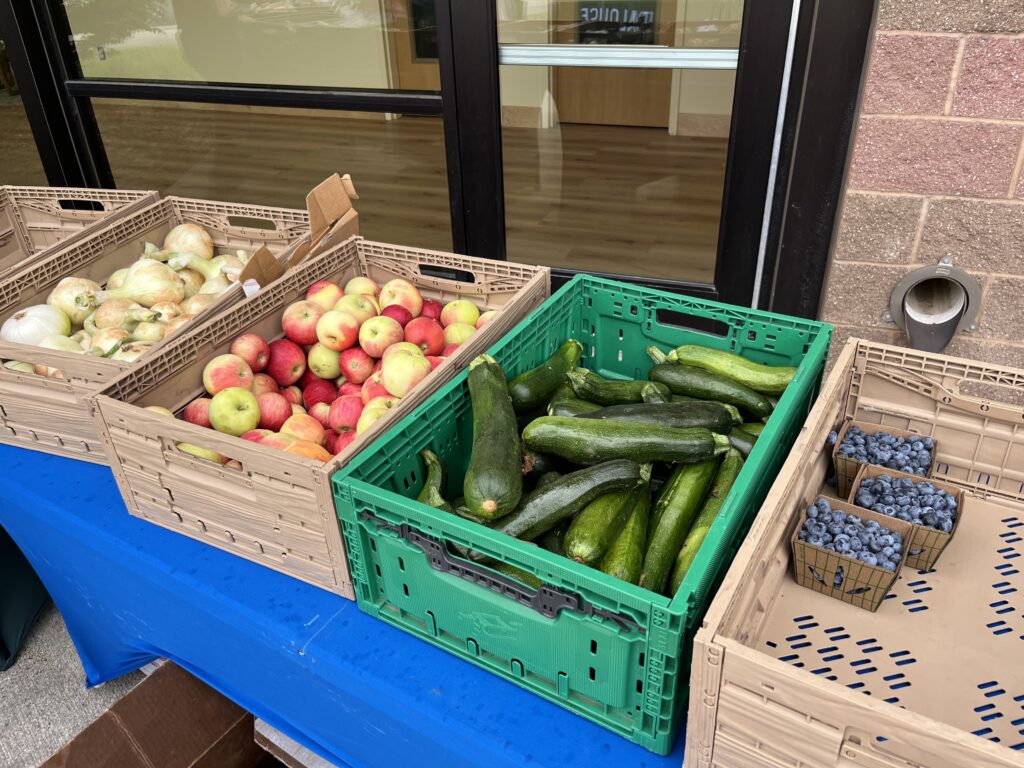Executive summary

On the Palouse, a mobile farm stand is making fresh food accessible to the community. The stand, coordinated through the Community Action Center food bank in Pullman, ensures people have access to fresh fruits and vegetables by sourcing produce from local farms around the region.
The mobile farm stand visits towns known as 'food deserts,' where grocery stores are scarce or only sell processed foods. By purchasing produce at market cost and selling it at a suggested donation price, the community center supports both growers and consumers. The stand has become a reliable resource for people of all ages and backgrounds, including emergency room workers, older, lower-income, and immigrant populations.
On the Palouse, a mobile farm stand makes fresh food accessible - Northwest Public Broadcasting
There’s a traveling farmer’s market making its way around the Palouse this fall. Except it isn’t an ordinary farmers market — it’s a mobile farm stand. If you were walking by, you’d see portable tables with plastic crates filled with produce.
Deena Bayoumi coordinates the stand through the Community Action Center food bank in Pullman.
“Customers pay a suggested donation price, and we have local produce grown from different farms around the Palouse,” Bayoumi said.
The farm stand ensures people have access to fresh fruits and vegetables with a simple goal: “Spreading food out as far as it will go, to anyone who needs it,” said Adie Rayfield, an employee with the Community Action Center.
In addition to picking up donations from grocery stores and farms, Rayfield also works at the booth. On this day, it’s right outside the Pullman Regional Hospital.
A lot of the towns the mobile farm stand visits are known as “food deserts,” which are defined as areas that lack access to grocery stores and nutritious foods.
“Or if they have a grocery store, it’s more akin to a convenience store where they don’t sell fresh food or they only sell certain things like bananas and apples that they’ve gotten shipped in — it’s certainly not always fresh,” Bayoumi said.

Some of the fresh food available at the mobile farm stand. (Credit: Phineas Pope / NWPB)
She also said the farm stand also supports the growers, not just those who consume the fresh food. The Community Action Center purchases produce from growers at market cost.
There’s a variety of people who stop by the farm stand, too. At the hospital, it’s a lot of emergency room workers taking blueberries. But there’s also people from older, lower-income and immigrant populations.
Bayoumi said the mobile farm stand has become a resource that people are relying on, as well as something that people really appreciate.
“Being able to access the same fresh food that they would be able to get at the Moscow farmers market, but not having to drive, you know, over an hour to get there,” she said.
That day at the hospital, broccoli, cauliflower, potatoes, blueberries and zucchinis were the popular choices — and many of those containers were well stocked. Rayfield said that’s something the organization struggles with.
“The main issue we’re running into is that there’s just, like, not enough people to take the produce away from us,” she said.
Bayoumi believes the mobile farm stand has brought people together, and she hopes to continue to increase food access throughout the region.
This story is part of a continuing series focused on regional nonprofits.